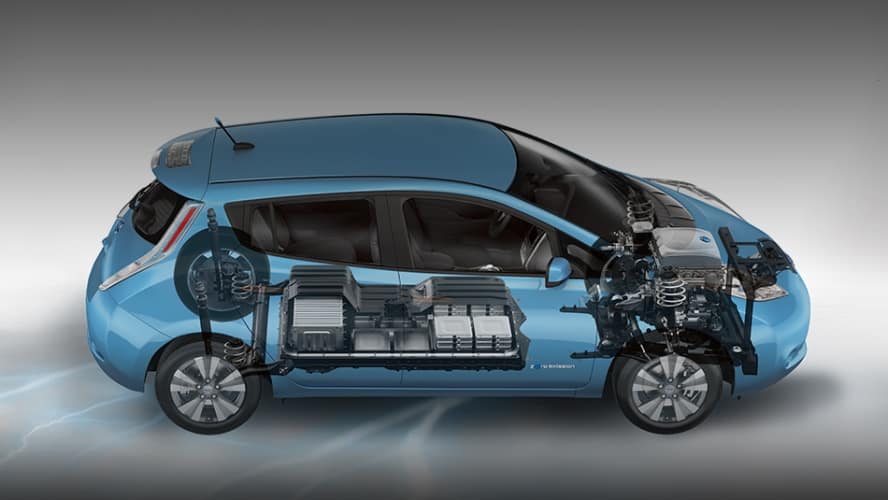Nissan is leading a £19.4m UK project to develop next generation lithium-ion batteries for electric cars.
The project, which has funding from the Advanced Propulsion Centre, is aiming to develop new and improved chemistry and manufacturing processes for li-ion batteries.
The consortium also includes Warwick Manufacturing Group (WMG), Hyperdrive, Newcastle University and Zero Carbon Futures. The research will be based around Nissan’s Sunderland battery manufacturing plant, which is the largest facility of its kind in Europe.

Researchers at WMG will investigate potential improvements to li-ion battery chemistry and manufacturing yield, and develop automated production processes, according to David Greenwood, professor of advanced propulsion systems at WMG.
“For passenger cars in particular, the trend towards electrification, whether that is hybridisation, plug-in hybrids, or full electric, is marching inexorably onwards,” he said. “But one of the challenges we have is in bringing down the cost of the systems.”
Researchers at WMG have for some time been working to improve the chemistry of li-ion batteries, in a bid to achieve higher energy densities for every cubic metre of material used, he said.
“There is a lot of work going on (at WMG) at the microscopic scale, on the structuring of the electrode materials to give the greatest surface area for reactions to take place, and to allow the lithium ions to circulate freely through the carbon matrix,” he said.
The team are also attempting to better understand the electrochemistry behind some of the processes involved in manufacturing batteries, including adding electrolyte to the electrodes, and when the device is given its first charge.
“The processes for doing these things have been developed by manufacturers in a way that they know works, but they’re far from optimised, and the fundamental science behind them is not very well understood,” he said.
By better understanding the science behind the processes, the researchers hope to reduce the amount of time they take, he said.




Project to investigate hybrid approach to titanium manufacturing
What is this a hybrid of? Superplastic forming tends to be performed slowly as otherwise the behaviour is the hot creep that typifies hot...